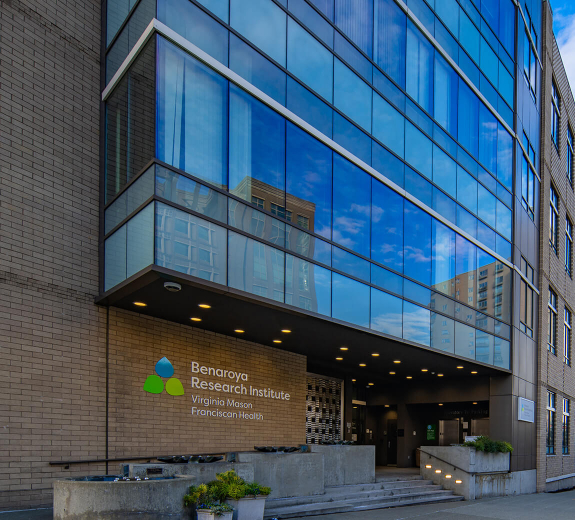Discovery to be published in Proceedings of the National Academy of Science (PNAS)
Implications for Therapies that Address Autoimmune Diseases
A team of scientists from the Benaroya Research Institute at Virginia Mason report research findings that open the door to a new type of therapy for autoimmune diseases. The team discovered a means to create T cells that have the potential to control unwanted immune responses such as those that lead to autoimmunity or transplant rejection. The results are published in a paper called De Novo Generation of Antigen-Specific CD4+CD25+ Regulatory T Cells from Human CD4+CD25- Cells, which will be published in the Proceedings of the National Academy of Science on March 15, 2005.
"This research demonstrates that we can create cells in the laboratory that respond to and regulate a specific immune system response in the body. The finding will allow us to focus immune suppression to specifically where it is needed without impairing the entire immune system. Most present immune therapies are not as targeted and suppress the immune system throughout the entire body. This research could be an enormous asset to finding future therapies for people with a host of autoimmune diseases like diabetes, multiple sclerosis (MS), rheumatoid arthritis and more," said Jane Buckner, M.D., Assistant Member at Benaroya Research Institute (BRI) at Virginia Mason, and senior investigator on this study.
This research could lead to fundamentally new ways to prevent loss of immune system regulation, a common problem in autoimmune diseases like diabetes where the body’s own immune system attacks and destroys the pancreas. The researchers showed they could isolate specific regulatory T cells in the midst of hundreds of thousands of other T cells and trigger them to protect and not attack their own system. Normally the human immune system uses T cells to work to defend the body and eliminate infections caused by bacteria, viruses, and other invading microbes.
New way to generate antigen specific regulating T cells
The BRI team identified a new way to generate a type of regulatory component referred to as CD4+CD25+ regulatory T cells. In the body, regulatory T cells are very rare, representing only 3 to 4 percent of T cells, making it difficult to isolate them for therapeutic purposes. This research showed the ability to generate regulatory T cells in the lab --opening up new possibilities for use of these cells. The CD4+CD25+ T cell is designed to target specific antigens and represents a giant step forward in terms of isolating a specific regulatory T cell that if properly triggered, could prevent disease.
Steven Ziegler, Ph.D., Director of Immunology at Benaroya Research Institute at Virginia Mason and another team investigator noted, "This research gives us hope that in the future we could tailor the type of regulatory T cell that could be used, and thus the therapy for autoimmune diseases. The work certainly presents many new possibilities for scientific, biotechnological and clinical research." Ongoing research by the BRI team is aimed at extending these findings for therapeutic applications.
Approximately 50 million Americans, 20 percent of the population or one in five people, suffer from autoimmune diseases. Autoimmunity is a result of a misdirected immune system that causes one's own immune system to attack itself.



